Read the headlines on any given day and it’s easy to become discouraged about tragic events happening all around the world. But despite the depressing headlines, there are many positive things to look forward to as we begin a brand-new year — and some of those positive things are happening right here at ASU.
We asked several ASU researchers, professors and staff to answer two questions about why we should be optimistic in 2016:
Question 1: Terrorist attacks and resulting fear have generated pessimism about the coming year. Drawing on your professional perspective and areas of expertise, what would you say are reasons instead to be optimistic?
Question 2: On a more personal level, what are you hoping for in 2016?
Here are their answers.
Engaged about the Earth's health
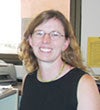
Hilairy Ellen Hartnett
associate professor, School of Earth and Space Exploration and the School of Molecular Sciences, both in the College of Liberal Arts and Sciences
A1: I believe that people are fundamentally creative and resourceful — we saw some evidence for that in the Paris climate agreements. Part of my research focuses on understanding what makes aquatic systems sustainable; when I talk to the public, I find people really are interested in how to be better stewards of their environment. More and more, people are beginning to see that humans are part of the Earth system and want to have a stake in the future of the planet. I see this as evidence that people are engaged and enthusiastic — that makes me optimistic! It’s certainly better than disinterest or ambivalence!
A2: On a very personal level, I’m hoping that 2016 is going to be a time of mental and physical healing for my family — we had an extremely hard year in 2015. On the more professional side of things, I’m excited for the ASU Planet Works Climate Design workshop in January; I’m hoping it will be the beginning of some very cool projects uniting researchers and scholars from across ASU to develop strategies for long-term management of our planet — essentially planning to build the future we want to live in.
Expanding the discourse of debate
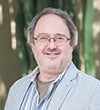
Dave Guston
founding director of the School for the Future of Innovation in Society
A1: As a political scientist who studies the democratic governance of science, technology and innovation, I tend to find debate — especially including debate about the gray, uncertain, value-laden areas of those fields — critically important. So while I would hope for even more public discussion, I’m a bit more optimistic entering 2016 that scientists, engineers and other innovators are debating issues like the beneficence of artificial intelligence, or the necessity of human germ line engineering.
A2: In 2015, I was honored to be the founding director of ASU’s newest school, the School for the Future of Innovation in Society. In 2016, we hope to launch our undergraduate major, minor and certificate programs. And with friend and colleague Ed Finn, I’m leading the Frankenstein Bicentennial Project, which in June 2016 will mark the bicentennial of the “dare” that led Mary Shelley to conjure the image of the monster coming to life. We’ll be celebrating with the completion of a new critical edition of the novel aimed at young scientists and engineers (with Jason Robert as lead editor) and a workshop in Geneva, after which we hope to issue some dares of our own.
Cybersecurity ... and homes for foster kids!
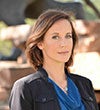
Jamie Winterton
director, Strategic Research Initiatives at the Global Security Initiative
A1: I’m optimistic because individuals are much more savvy about cybersecurity than they were a few years ago. I rarely hear “Why would anyone want to steal my information?” anymore. That level of understanding is a huge step forward for our collective security.
A2: I volunteer at a children’s shelter — Crisis Nursery, which cares for kids as they come into the foster system. I hope that in 2016, all my kids there can find safe and loving homes!
New telescope, and new scientists
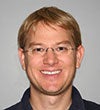
Judd Bowman
associate professor, School of Earth and Space Exploration
A1: Many scientific efforts are based on international collaborations and years of development that transcend current events. I’m excited for the new year to see the prototype Hydrogen Epoch of Reionization Array (HERA) telescope begin operations in South Africa. ASU is a partner member of the international project that aims to detect the fingerprints of the very first stars, galaxies and black holes from a time more than 13 billion years ago.
A2: We just finished evaluating proposals from dozens of recent outstanding Ph.D graduates around the world looking to come to ASU as Exploration Fellows to conduct research with faculty and students in the School of Earth and Space Exploration. I’m looking forward to welcoming two new amazing early-career scientists to ASU in the new year!
Radically changing the culture around sexual violence
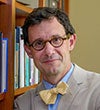
Steven Tepper
dean of the Herberger Institute for Design and the Arts
A1: Optimism is fueled by curiosity, and curiosity is the handmaiden of artists and designers. In 2016, we will likely graduate close to 130,000 performing and visual artists across the U.S. Most of them will spend much of their lives, both working within and outside of the arts, stimulating curiosity and creativity in every area of public life. More of our economy every year is dependent on intellectual property — the stories and designs that make life richer and more beautiful. That is an optimistic trend by all accounts.
A2: I am hoping that ASU — with the help of every college and unit on campus — will launch the nation’s largest arts-based intervention to radically change the culture around sexual violence. I want to see artists and designers lead this campus in becoming a national model for tolerance, civility and respect.
A university mission that stands up to xenophobia
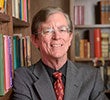
Jim O’Donnell
university librarian at Arizona State University Libraries
A1: ASU’s charter is a strong voice against xenophobia, fear and nonsense. I keep repeating these words as my mantra: “Measured not by whom we exclude, but rather by whom we include and how they succeed.” I’m new here, and none of the great things about ASU mean half as much as those words.
A2: In the ASU Library, we look forward to a time of transformed services and transformed spaces, underlying the work of virtually every faculty member and every student. Already highly regarded by our users, we are ambitious to do more and better, for all of them, wherever they may be. At the same time, we are beginning to transform our spaces into what will soon be a showplace at the heart of the university, a showcase for the best ASU people do, and a showroom for the unique things we can do.
Things are actually better than 10 or 20 years ago
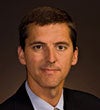
James G. Hodge Jr.
professor of public health law and ethics, Sandra Day O'Connor College of Law
A1: Pessimism is its own worst enemy to the extent it leads people to see the worst of the many challenges the nation faces. Here is a reality check: The U.S. economy is surging, gas is cheap, and personal security and public health are better now than five, 10 or 20 years ago. About a decade ago, these present successes were the current “challenges” for which some were pessimistic. Improvements in these key areas placated many, but pessimists will always remain.
A2: In 2016 I look forward to a nation putting aside its fears and moving forward on its promise, especially toward improving the health of communities across the country.
Chances are VERY low for a Yellowstone catastrophic eruption
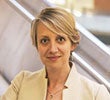
Christy Till
geologist, School of Earth and Space Exploration (SESE)
A1: SESE is really catching its stride — it is tremendously exciting and fulfilling to be part of the interdisciplinary science flourishing here, as well as to watch the growth of students in this environment. The Paris climate talks lead to unprecedented worldwide acknowledgement of climate change and a plan for action in the future. This alone is a reason for optimism. Also as a scientist who strives to communicate what we do and its value to the general public, I found the scientific discourse about climate change in the media associated with the Paris climate talks to be really effective and an advancement over times past, which was also a reason for optimism.
And there is only a 0.005 percent (in other words, a 5 out of 100,000) chance that Yellowstone will have a catastrophic eruption in 2016!
A2: I am looking forward to the first scientific results from our new lab here in SESE, the Experimental Petrology and Igneous processes Center (EPIC). The construction and calibration of the lab has been underway since January 2014 when I started here, and now to be at the stage where the lab is bustling with students doing research and we are on our way to producing important scientific results is a wonderful feeling like no other.
The Force is strong with space exploration
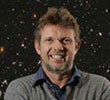
Rogier Windhorst
Regents' and Foundation Professor and James Webb Space Telescope Interdisciplinary Scientist, School of Earth and Space Exploration
A1: Despite the terrorist attacks worldwide in late 2015, I am optimistic about 2016. I was just in Paris for the First Light conference and noticed a renewed mental strength and defiance of people everywhere.
Even though 2016 is an election year, I think the events of the last month will, in the end, bring both sides of the aisle in the U.S. together in 2016, as we have already seen in Congress this last week. This is good for space science and space exploration, which captures the imagination of Congress and of the public — how could the new Star Wars movie otherwise gross half a billion dollars in two days? THAT makes me optimistic!
A2: For 2016, I hope and expect the James Webb Space Telescope (JWST) to undergo its final integration and begin its final testing before it is moved to the launch pad in late summer 2018. While JWST is finishing up, I expect NASA to ramp up its new Cosmology Flagship mission: the WFIRST satellite (Wide-Field Infrared Space Telescope). ASU plays a key role in WFIRST's science program. WFIRST and new ground-based facilities, such as the low-frequency radio telescopes, will trigger and lead new efforts in “big data” mining. All of these can and will have strong synergy with homeland security and capture the attention of Congress and the public. Amongst others, this is what makes me optimistic about astrophysics and space exploration in 2016: We are not alone in doing astrophysics research and space exploration — we've got a whole world behind us that really cares.
First steps in the right direction with climate change
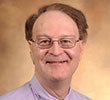
Bruce Rittmann
director of the Swette Center for Environmental Biotechnology at ASU
A1: While terrorism is a terrible scourge of human society today, the creeping impacts of global climate change will be far more devastating in the decades ahead. While terrorism affects a few people through horrific, punctuated events, global climate change will affect hundreds of millions of people in ways that will challenge the social and technological fabrics of humanity.
So, can I be optimistic in the face of the devastating “facts on the ground”? Despite our precarious position now, I can be guardedly optimistic. One reason is that most of the world has at least awakened to the pressing need to act. The recent “Paris Agreement” is the first serious step taken to slow the increase in greenhouse gases. That the USA is actively behind the Paris Agreement is very encouraging. The U.S. government is actively involved in supporting efforts to move us toward a much more renewable and low-carbon energy economy. The U.S. Department of Defense is at the vanguard, since the DoD realizes that its job of ensuring U.S. security will be seriously compromised by the impacts of global climate change. The U.S. Departments of Energy and Agriculture are also joining with the National Science Foundation to foster research and development to move our nation’s (and also the world’s) energy, water and food systems towards more sustainable models. All of these are first steps in the right direction.
A2: Personally, I am eager to expand immediately relevant R&D [research and development] efforts in the Swette Center for Environmental Biotechnology at ASU. In the center, we partner with different types of microorganisms that have metabolic capabilities that allow them to generate renewable, carbon-neutral energy. For example, we are beginning a Department of Energy-funded project that involves capturing atmospheric CO2, enriching it, and using the enriched CO2 to increase photosynthetic micro algae that convert sunlight energy into biofuels. Success will mean renewable biofuel that can be generated in any sunny location at reasonable cost. Another example is what we call PARENS, or Profitable Agriculture through Renewable Energy, Nutrients and Solids. Success with PARENS will turn waste liabilities into profit centers for the food systems, and it will help break our society’s dependence on fossil sources of energy and fertilizer.
World is full of innovative people — and we'll move forward
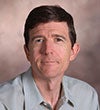
Neal Woodbury
professor, School of Molecular Sciences; co-director, Center for Innovation in Medicine at the Biodesign Institute
A1: I view the current turmoil as the inevitable result of a sudden and massive increase in worldwide communication that can no longer be entirely controlled by even the most non-progressive ideologies. Yes, this causes culture clashes on a large scale, but it is the platform through which understanding will eventually emerge and with that a level of stability that is currently unattainable. This is going to take longer than a year to sort out, but the world is full of innovative people and ultimately solutions will emerge. Technology has played a big role in bringing us to this point, and it will play as much or more of a role in providing the larger population with opportunities and a lifestyle currently unavailable to them. In the end, we will chose to go forward, not backward.
A2: This will be a year of transition for me, moving from a mostly very focused research effort to a much broader coordination of activities. It will be very challenging, but I am certain to learn a lot.
More Local, national and global affairs

Foreign policy experts see Arizona as pivotal on world stage
America’s relationship with other countries is in flux right now, and Arizona, with its booming economy, is a perfect example of how foreign policy is inextricably tied to domestic issues, according…
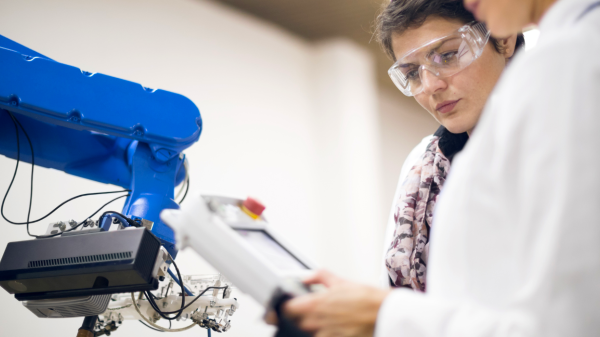
¡ASU en Español! Expanding access to learning for Spanish-speaking communities worldwide
How do you drive economic transformation in a world increasingly shaped by technology?Arizona State University is deepening its commitment to Latin America and the global Hispanic community through a…
Refugee students join ASU through new Welcome Corps on Campus program
Among the thousands of undergraduates who are new to Arizona State University this semester are two young women who are in the first cohort of Welcome Corps on Campus, a program that empowers U.S.…
